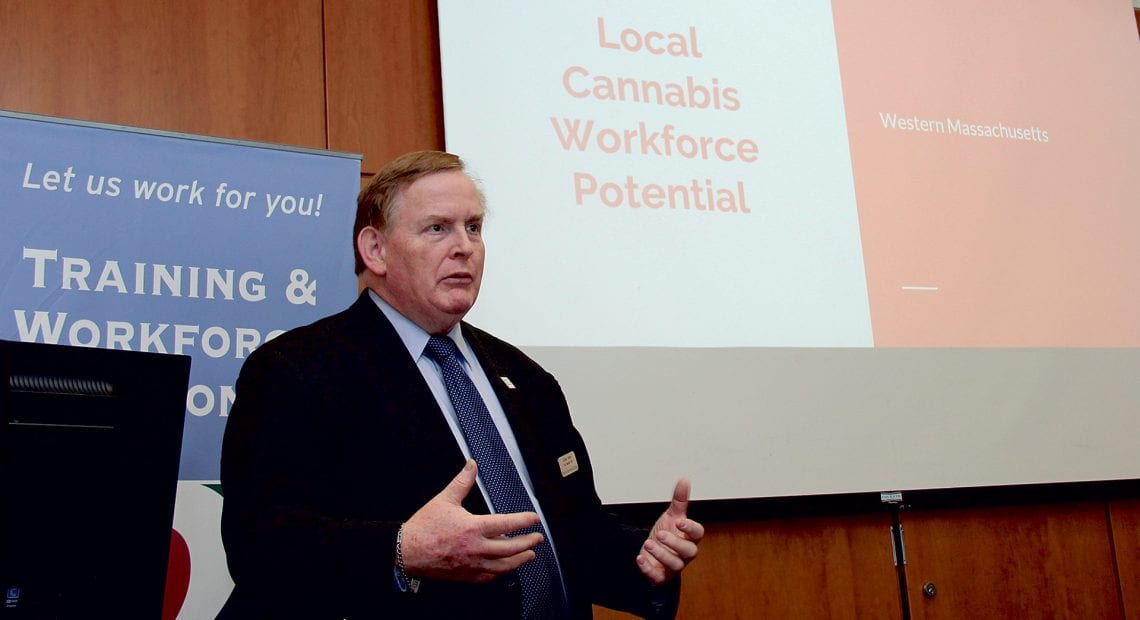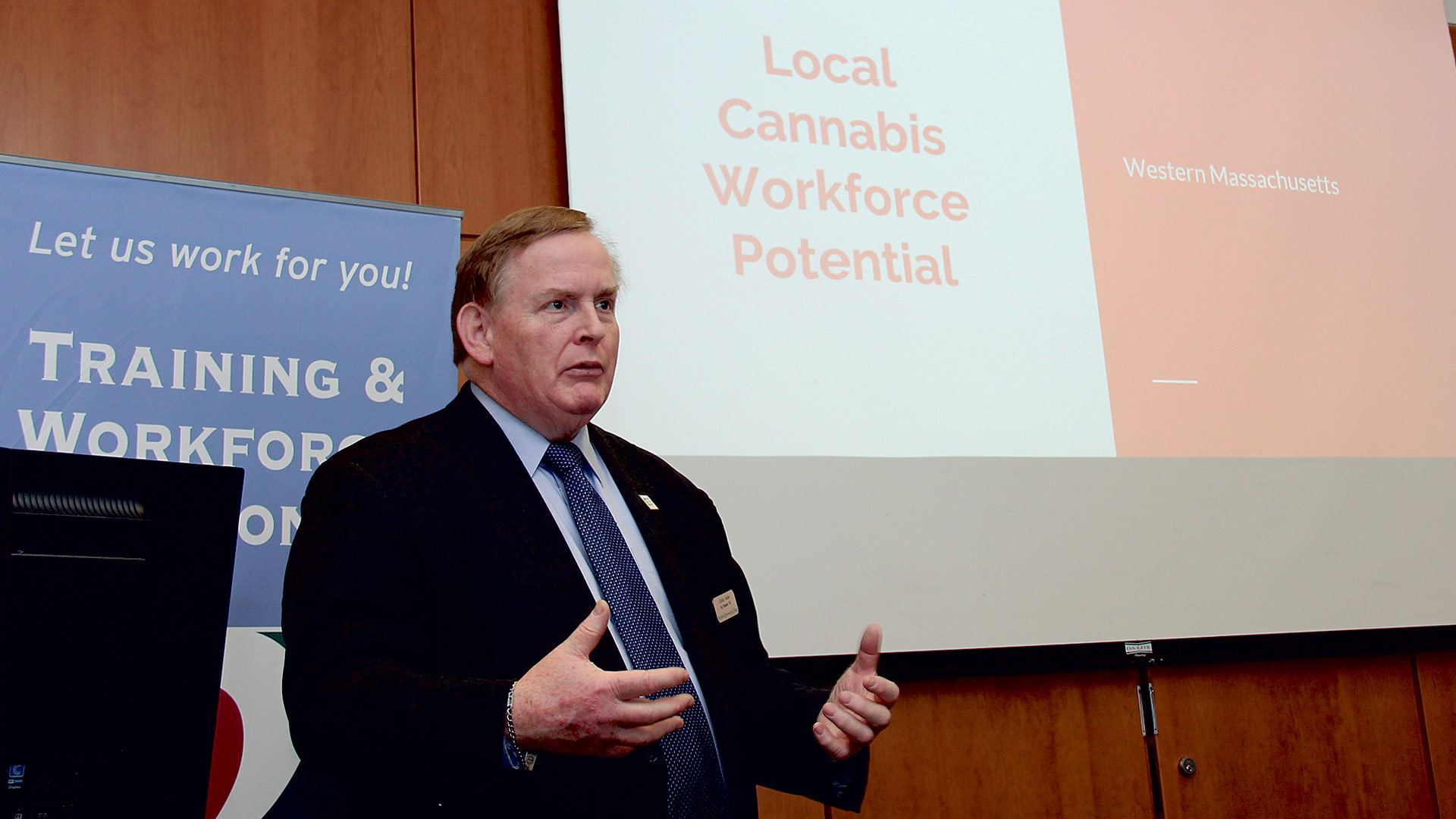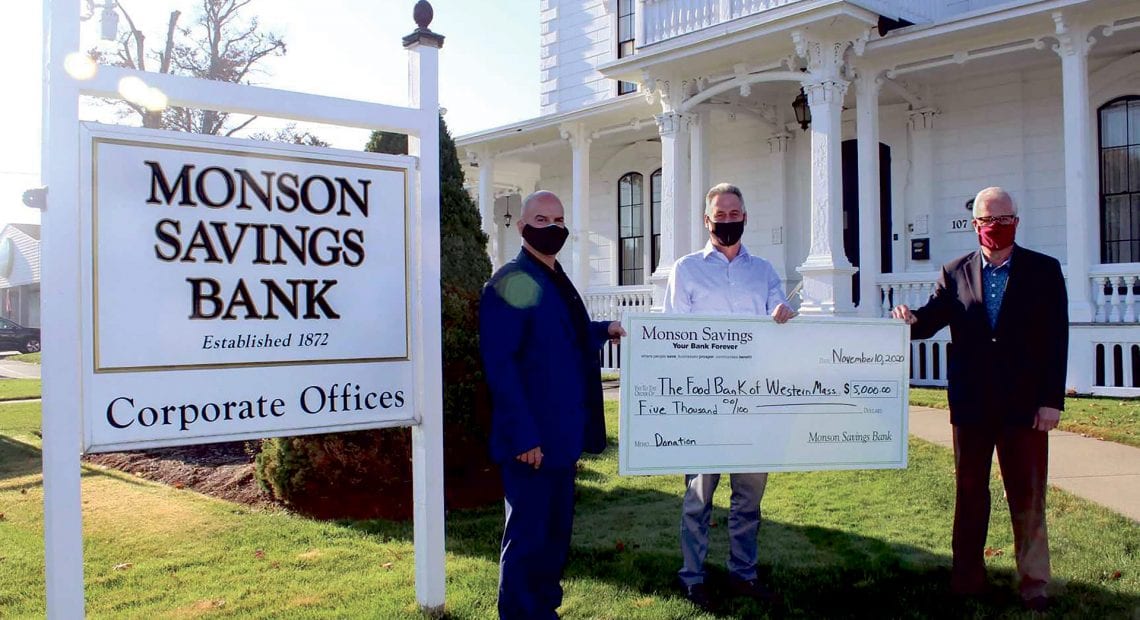Year-end Tax Planning
By Kristina Drzal Houghton, CPA, MST

This year has been unlike any other in recent memory. Front and center, the COVID-19 pandemic has touched virtually every aspect of daily living and business activity in 2020. In addition to other financial consequences, the resulting fallout is likely to have a significant impact on year-end tax planning for both individuals and small businesses.

Kristina Drzal Houghton
Furthermore, if the election of Joe Biden is confirmed and the Republican party does not hold a majority in the Senate following the runoff elections in Georgia, it is likely to affect the tax situation in 2021 and beyond. This article will first address 2020 planning and then summarize some of the Biden tax proposals at the end.
In response to the pandemic, Congress authorized economic-stimulus payments and favorable business loans as part of the Coronavirus Aid, Relief, and Economic Security (CARES) Act. The CARES Act also features key changes relating to income and payroll taxes. This new law follows close on the heels of the massive Tax Cuts and Jobs Act (TCJA) of 2017. The TCJA revised whole sections of the tax code and includes notable provisions for both individuals and businesses.
This is the time to paint your overall tax picture for 2020. By developing a year-end plan, you can maximize the tax breaks currently on the books and avoid potential pitfalls.
BUSINESS TAX PLANNING
Depreciation-related Deductions
Under current law, a business may benefit from a combination of three depreciation-based tax breaks: the Section 179 deduction, ‘bonus’ depreciation, and regular depreciation.
• Place qualified property in service before the end of the year. Typically, a small business can write off most, if not all, of the cost in 2020.
• The maximum Section 179 allowance for 2020 is $1,040,000 provided asset purchases do not exceed $2,590,000.
• Be aware that the Section 179 deduction cannot exceed the taxable income from all your business activities this year. This could limit your deduction for 2020.
• If you buy a heavy-duty SUV or van for business, you may claim a first-year Section 179 deduction of up to $25,000. The ‘luxury car’ limits do not apply to certain heavy-duty vehicles.
• If your deduction is limited due to either the income threshold or the amount of additions, a first-year bonus depreciation deduction of 100% for property placed in 2020 is also available.
• Massachusetts does not follow the bonus depreciation, but does allow the increased Section 179 expense; however, many states do not follow that increased expense either.
Business Interest
• Prior to 2018, business interest was fully deductible. But the TCJA generally limited the deduction for business interest to 30% of adjusted taxable income (ATI). Now the CARES Act raises the deduction to 50% of ATI, but only for 2019 and 2020.
• Determine if you qualify for a special exception. The 50%-of-ATI limit does not apply to a business with average gross receipts of $25 million (indexed for inflation) or less for the three prior years. The threshold for 2020 is $26 million.
Bad-debt Deduction
During this turbulent year, many small businesses are struggling to stay afloat, resulting in large numbers of outstanding receivables and collectibles.
• Increase your collection activities now. For instance, you may issue a series of dunning letters to debtors asking for payment. Then, if you are still unable to collect the unpaid amount, you can generally write off the debt as a business bad debt in 2020.
• Generally, business bad debts are claimed in the year they become worthless. To qualify as a business bad debt, a loan or advance must have been created or acquired in connection with your business operation and result in a loss to the business entity if it cannot be repaid.
Miscellaneous
• If you pay year-end bonuses to employees in 2020, the bonuses are generally deductible by your company and taxable to the employees in 2020. A calendar-year company operating on the accrual basis may be able to deduct bonuses paid as late as March 15, 2021 on its 2020 return.
• Generally, repairs are currently deductible, while capital improvements must be depreciated over time. Therefore, make minor repairs before 2021 to increase your 2020 deduction.
• Switch to cash accounting. Under a TCJA provision, a C-corporation may use this simplified method if average gross receipts for last year exceeded $26 million (up from $5 million).
• An employer can claim a refundable credit for certain family and medical leaves provided to employees. The credit is currently scheduled to expire after 2020.
• Investigate Paycheck Protection Program (PPP) forgiveness. Under the CARES Act, PPP loans may be fully or partially forgiven without tax being imposed. Despite recent guidance, this remains a complex procedure, so consult with your professional tax advisor about the details.
INDIVIDUAL TAX PLANNING
Charitable Donations
Generally, itemizers can deduct amounts donated to qualified charitable organizations, as long as substantiation requirements are met. Be aware that the TCJA increased the annual deduction limit on monetary contributions from 50% of adjusted gross income (AGI) to 60% for 2018 through 2025. Even better, the CARES Act raises the threshold to 100% for 2020.
• In addition, the CARES Act authorizes an above-the-line deduction of up to $300 for monetary contributions made by a non-itemizer in 2020 ($600 for a married couple).
• In most cases, you should try to ‘bunch’ charitable donations in the year they will do you the most tax good. For instance, if you will be itemizing in 2020, boost your gift giving at the end of the year. Conversely, if you expect to claim the standard deduction this year, you may decide to postpone contributions to 2021.
• For donations of appreciated property that you have owned longer than one year, you can generally deduct an amount equal to the property’s fair market value (FMV). Otherwise, the deduction is typically limited to your initial cost. Also, other special rules may apply to gifts of property. Notably, the annual deduction for property donations generally cannot exceed 30% of AGI.
• If you donate to a charity by credit card in December — for example, if you make an online contribution — you can still write off the donation on your 2020 return, even if you do not actually pay the credit-card charge until January.
Family Income Splitting
The time-tested technique of family income splitting still works. Currently, the top ordinary income-tax rate is 37%, while the rate for taxpayers in the lowest income tax bracket is only 10%. Thus, the tax rate differential between you and a low-taxed family member, such as a child or grandchild, could be as much as 27% — not even counting the 3.8% net investment-income tax (more on this later).
• Shift income-producing property, such as securities, to family members in low tax brackets through direct gifts or trusts. This will lower the overall family tax bill. But remember that you are giving up control over those assets. In other words, you no longer have any legal claim to the property.
• Also, be aware of potential complications caused by the ‘kiddie tax.’ Generally, unearned income above $2,200 received in 2020 by a child younger than age 19, or a child who is a full-time student younger than age 24, is taxed at the top marginal tax rate of the child’s parents. (Recent legislation reverses a TCJA change on the tax treatment.) The kiddie tax could affect family income-splitting strategies at the end of the year.
Higher-education Expenses
The tax law provides tax breaks to parents of children in college, subject to certain limits. This often includes a choice between one of two higher-education credits and a tuition-and-fees deduction.
• Typically, you can claim either the American Opportunity Tax Credit (AOTC) or the Lifetime Learning Credit (LLC). The maximum AOTC of $2,500 is available for qualified expenses of each student, while the maximum $2,000 LLC is claimed on a per-family basis. Thus, the AOTC is usually preferable. Both credits are phased out based on modified adjusted gross income (MAGI).
• Alternatively, you may claim the tuition-and-fees deduction, which is either $4,000 or $2,000 before it is phased out based on MAGI. The tuition-and-fees deduction, which has expired and been revived several times, is scheduled to end after 2020, but could be reinstated again by Congress.
• When appropriate, pay qualified expenses for next semester by the end of this year. Generally, the costs will be eligible for a credit or deduction in 2020, even if the semester does not begin until 2021.
Medical and Dental Expenses
Previously, taxpayers could only deduct unreimbursed medical and dental expenses above 10% of their AGI. When it is possible, accelerate non-emergency qualifying expenses into this year to benefit from the lower threshold. For instance, if you expect to itemize deductions and have already surpassed the 7.5%-of-AGI threshold this year, or you expect to clear it soon, accelerate elective expenses into 2020. Of course, the 7.5%-of-AGI threshold may be extended again, but you should maximize the tax deduction when you can.
Estimated Tax Payments
The IRS requires you to pay federal income tax through any combination of quarterly installments and tax withholding. Otherwise, it may impose an ‘estimated tax’ penalty.
However, no estimated tax penalty is assessed if you meet one of these three ‘safe harbor’ exceptions under the tax law:
• Your annual payments equal at least 90% of your current liability;
• Your annual payments equal at least 100% of the prior year’s tax liability (110% if your AGI for the prior year exceeded $150,000); or
• You make installment payments under an ‘annualized income’ method. This option may be available to taxpayers who receive most of their income during the holiday season.
If you have received unemployment benefits in 2020 — for example, if you lost your job due to the COVID-19 pandemic — remember that those benefits are subject to income tax. Factor this into your estimated tax calculations for the year.
Capital Gains and Losses
Frequently, investors time sales of assets such as securities at year-end to produce optimal tax results. For starters, capital gains and losses offset each other. If you show an excess loss for the year, it offsets up to $3,000 of ordinary income before being carried over to the next year. If you sell securities at a loss and reacquire substantially identical securities within 30 days of the sale, the tax loss is disallowed.
• Long-term capital gains from sales of securities owned longer than one year are taxed at a maximum rate of 15%, or 20% for certain high-income investors. Conversely, short-term capital gains are taxed at ordinary income rates reaching up to 37% in 2020.
• Review your investment portfolio. Depending on your situation, you may harvest capital losses to offset gains realized earlier in the year or cherry-pick capital gains that will be partially or wholly absorbed by prior losses.
Net Investment-income Tax
In addition to capital-gains tax, a special 3.8% tax applies to the lesser of your net investment income (NII), or the amount by which your modified adjusted gross income (MAGI) for the year exceeds $200,000 for single filers or $250,000 for joint filers. (These thresholds are not indexed for inflation.) The definition of NII includes interest, dividends, capital gains, and income from passive activities, but not Social Security benefits, tax-exempt interest, and distributions from qualified retirement plans and IRAs.
• Assess the amount of your NII and your MAGI at the end of the year. When it is possible, reduce your NII tax liability in 2020 or avoid it altogether.
Required Minimum Distributions
As a general rule, you must receive required minimum distributions (RMDs) from qualified retirement plans and IRAs after reaching age 72 (70½ for taxpayers affected prior to 2020). The amount of the RMD is based on IRS life-expectancy tables and your account balance at the end of last year
• Take RMDs in 2020 if you need the cash. Otherwise, you can skip them this year, thanks to a suspension of the usual rules by the CARES Act. There is no requirement to demonstrate any hardship relating to the pandemic. Finally, although RMDs are no longer required in 2020, consider a qualified charitable distribution (QCD). If you are age 70½ or older, you can transfer up to $100,000 of IRA funds directly to a charity. Although the contribution is not deductible, the QCD is exempt from tax. This may benefit your overall tax picture.
IRA Rollovers
If you receive a distribution from a qualified retirement plan or IRA, it is generally subject to tax unless you roll it over into another qualified plan or IRA within 60 days. In addition, you may owe a 10% tax penalty on taxable distributions received before age 59½. However, some taxpayers may have more leeway to avoid tax liability in 2020 under a special CARES Act provision.
• Take your time redepositing the funds if it qualifies as a COVID-19-related distribution. The CARES Act gives you three years, instead of the usual 60 days, to redeposit up to $100,000 of funds in a plan or IRA without owing any tax.
• To qualify for this tax break, you (or your spouse, if you are married) must have been diagnosed with COVID-19 or experienced adverse financial consequences due to the virus (e.g., being laid off, having work hours reduced, or being quarantined or furloughed). If you do not replace the funds, the resulting tax is spread evenly over three years.
• This may be a good time to consider a conversion of a traditional IRA to a Roth IRA. With a Roth, future payouts are generally exempt from tax, but you must pay current tax on the converted amount. Have a tax professional help you determine if this makes sense for your situation.
Estate and Gift Taxes
Since the turn of the century, Congress has gradually increased the federal estate-tax exemption, while eventually establishing a top estate-tax rate of 40%. The TCJA doubled the exemption from $5 million to $10 million for 2018 through 2025, inflation-indexed to $11.58 million in 2020.
Under the ‘portability provision’ for a married couple, the unused portion of the estate-tax exemption of the first spouse to die may be carried over to the estate of the surviving spouse. This tax break is now permanent.
Finally, guidance has been published establishing that, when the exemption is decreased in the future, a recapture or ‘claw-back’ of the extra exemption used will not be required.
Update your estate plan to reflect current law. You may revise wills and trusts to accommodate the rule allowing portability of the estate-tax exemption. Additionally, consider the maximum gifting currently as allowable in your financial position.
Miscellaneous
You can contribute up to $19,500 to a 401(k) in 2020 ($26,000 if you are age 50 or older).
BIDEN’S NOTABLE TAX PROPOSALS
Business Tax
• The statutory corporate tax rate would be increased from 21% to 28%.
• The benefits of the Section 199A/qualified business-income deduction would be phased out for individuals with taxable income greater than $400,000.
• The real-estate industry will potentially be impacted. The Biden campaign had suggested potential changes to the §1031 like-kind exchange provisions as well as changes to effectively limit losses that may be utilized by real-estate investors.
Individual Tax
Many of the revenue-raising aspects of the Biden tax proposal for individuals apply only to those taxpayers with taxable income over $400,000. It has not been specified whether this threshold is to be adjusted for filing status.
• The top ordinary rate would be restored to 39.6% for taxpayers with income over $400,000. This reflects a return to pre-2017 tax reform when the top ordinary rate was dropped to 37%.
• For top income earners, this rate is currently capped at 20% (plus 3.8% to the extent subject to the net investment-income tax). Under the Biden plan, capital gains and qualified dividends will be subject to the top rate of 39.6% for individuals with more than $1 million in income.
• The Section 199A/qualified business-income deduction would begin to phase out for individuals over $400,000 in taxable income.
• Itemized deductions would be capped to 28% of value. Additionally, benefits would begin to phase out for individuals with taxable income over $400,000.
• The child and dependent care credit would be increased to a maximum of $8,000 for low-income and middle-class families. In addition, the credit would be made refundable.
• First-time homebuyers could receive up to $15,000 of refundable and advanceable tax credit.
• There could be temporary expansion of the child tax credit, depending on the progression of the pandemic and economic conditions. This expansion would increase the credit from $2,000 to $3,000 for children 17 or younger with an additional $600 for children under 6. The credit would also be refundable and allowable to be received in monthly installments.
Gift and Estate Tax
The gift- and estate-tax exemption amount would be reduced. Many are suggesting that Biden is looking to reduce the gift- and estate-tax exemption to the pre-TCJA levels.
Conclusion
This year-end tax-planning letter is based on the prevailing federal tax laws, rules, and regulations. Of course, it is subject to change, especially if additional tax legislation is enacted by Congress before the end of the year.
Finally, remember that this article is intended to serve only as general guideline. Your personal circumstances will likely require careful examination. u
Kristina Drzal Houghton, CPA, MST is partner, Executive Committee, and director of Taxation Services at Meyers Brothers Kalicka; (413) 536-8510.





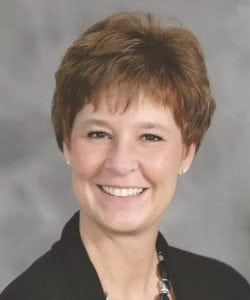















 In 1999, Carol Moore Cutting, a 2019 Women of Impact honoree, launched WEIB 106.3 FM, the only locally owned commercial FM radio station in the Greater Springfield market, the only female-owned FM radio station in Massachusetts, and the only station in New England owned by a person of color. She’s also sponsored myriad cultural organizations and jazz festivals in the Pioneer Valley and beyond, while supporting non-arts-related nonprofits over the years as well.
In 1999, Carol Moore Cutting, a 2019 Women of Impact honoree, launched WEIB 106.3 FM, the only locally owned commercial FM radio station in the Greater Springfield market, the only female-owned FM radio station in Massachusetts, and the only station in New England owned by a person of color. She’s also sponsored myriad cultural organizations and jazz festivals in the Pioneer Valley and beyond, while supporting non-arts-related nonprofits over the years as well. As senior vice president of Marketing at Country Bank, Shelley Regin draws on 25 years of experience with that institution. She has a bachelor’s degree in business administration and management and holds the professional designation of certified financial marketing professional, as well as a certification in social media. She also serves as vice president of the New England Financial Marketing Assoc. and an advisory board member for the American Bankers Assoc. Marketing School.
As senior vice president of Marketing at Country Bank, Shelley Regin draws on 25 years of experience with that institution. She has a bachelor’s degree in business administration and management and holds the professional designation of certified financial marketing professional, as well as a certification in social media. She also serves as vice president of the New England Financial Marketing Assoc. and an advisory board member for the American Bankers Assoc. Marketing School. Katherine Putnam, another 2019 Women of Impact honoree, is managing director of Golden Seeds, a national investment firm that focuses on early-stage businesses that have women in management and leadership roles. While investing in some developing ventures, she spends most of her time advising and mentoring entrepreneurs, especially women, while working diligently to create strategies for helping women and minorities crash through the many barriers facing them as entrepreneurs.
Katherine Putnam, another 2019 Women of Impact honoree, is managing director of Golden Seeds, a national investment firm that focuses on early-stage businesses that have women in management and leadership roles. While investing in some developing ventures, she spends most of her time advising and mentoring entrepreneurs, especially women, while working diligently to create strategies for helping women and minorities crash through the many barriers facing them as entrepreneurs.





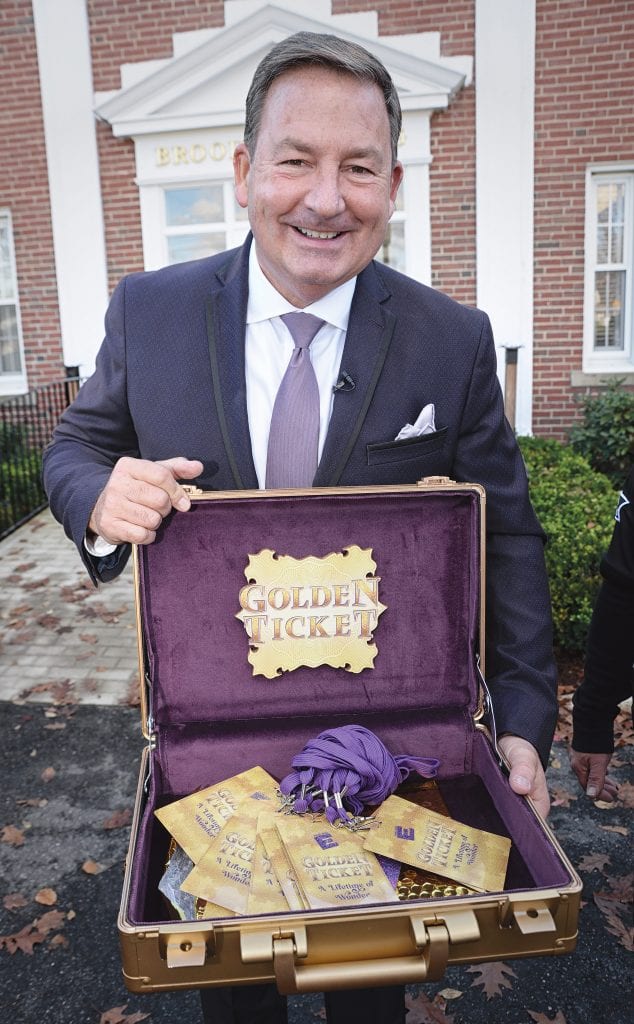


















 Judy Matt says the Spirit of Springfield (SOS) exists for one reason — to entertain residents across the region and create some memories.
Judy Matt says the Spirit of Springfield (SOS) exists for one reason — to entertain residents across the region and create some memories.


